Sleep Information Sheet
(998.8 KB)
Click here for a downloadable copy
Download documentSleep is vital to children’s health, wellbeing, learning and development. It is important to ensure children have the correct amount of sleep so they have enough energy for the next day’s activities.
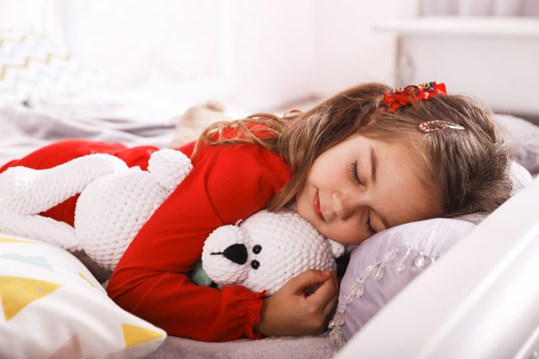
The circadian rhythm or internal ‘body clock’ tells us when to sleep and when to wake up, regulating our sleep pattern. Moving in a 24 hour daily cycle the circadian rhythm responds mainly to daylight.
We all go through sleep cycles. We move through light sleep, deep sleep, dream sleep, waking and then going back to sleep. Each of these cycles lasts for approximately 90 minutes. Brief waking after each cycle is part of a normal sleep pattern.
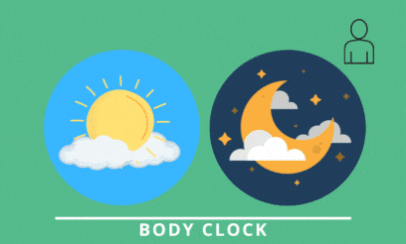
Sleep needs change as children get older. It helps to have an idea of how much sleep your child needs as this will be different depending on their age. All children are unique and some will need more or less sleep than others.
Daytime naps can help prevent young children becoming overtired. However, these should be scheduled to ensure your child does not have a prolonged nap in the late afternoon which is too close to bedtime.
Sleep Foundation.org publish informative, up-to-date research about topics related to sleep and health.
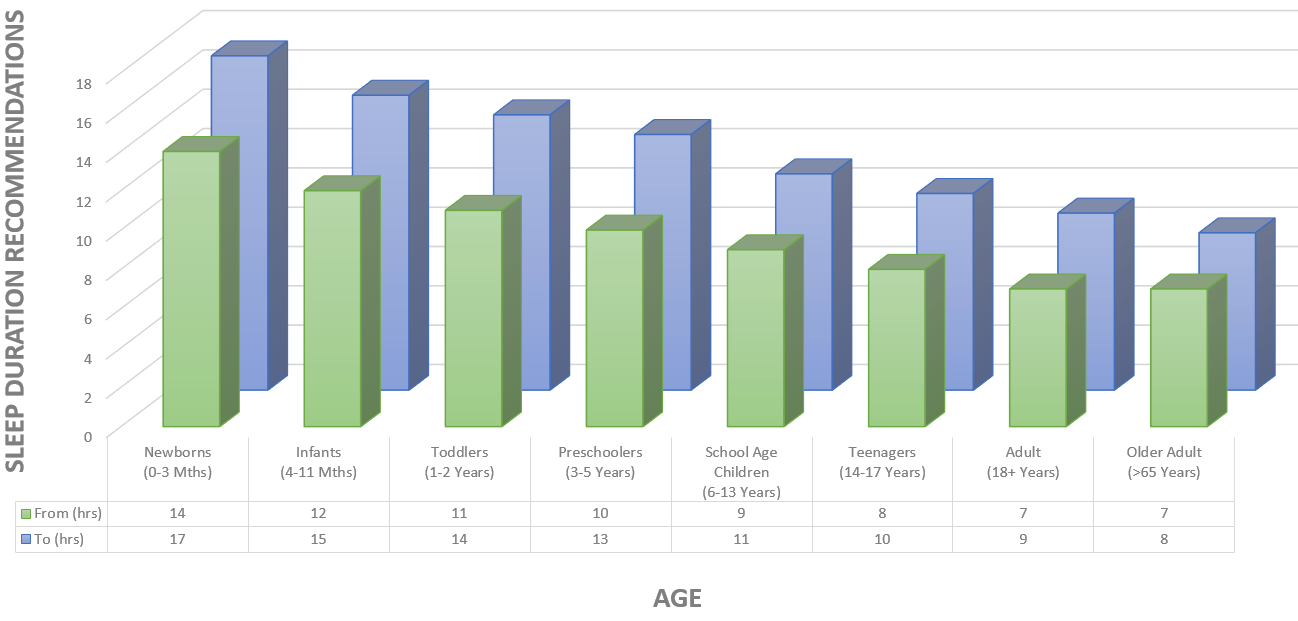
Quine Sleep Duration Chart
The aim of the sleep support videos is to:
Please be aware that it may take several months for any strategies you use to improve your child’s sleep to become effective.
It is often really helpful to make a sleep diary. It would be recommended that you keep this for two weeks. This will help you identify any patterns around the bedtime routine and sleep and have a log of where the problem areas are.
Sometimes it becomes clear that just a small change in your routine, for example, having supper before bath and then straight to bed every night, can make a significant difference to your child/young person's understanding of what you are asking them to do.
We have provided a template of a sleep diary for you to print off and use.

When babies are put into bed drowsy but not asleep, they are more likely to learn to ‘self- soothe’. This means they will be able to fall asleep independently and also go back to sleep when they wake during the night.
For those who have been soothed until they fall asleep this becomes a habit and they may become dependent on this routine to fall asleep and when they wake during the night.
By establishing a good bedtime routine which helps your child to settle to sleep and to stay asleep will support them to develop a healthy independent sleep pattern.
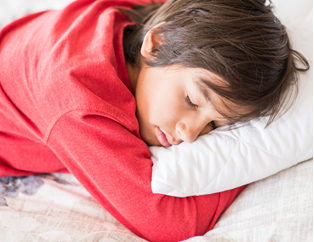
Encourage your child to be active during the day and spend some of the day outside. This will give them exposure to natural daylight and help them to feel tired at the end of the day so they will have a more restful sleep.

Encourage a healthy diet with regular meal times. Avoid a large meal too close to bedtime. Having a light snack at bedtime will ensure your child is not hungry and can help them to settle to sleep e.g. a drink of milk and slice of wholemeal toast.
Caffeine has a stimulant effect and can prevent people from feeling tired. Caffeine is found in tea, coffee, chocolate, cola, fizzy drinks and energy drinks. These should always be avoided in the afternoon and evening and should be limited throughout the day.

It is important to decide on a bedtime which is suitable for your child’s age. Putting them to bed at the same time each night and waking them at the same time each morning; including at weekends will strengthen their body clock and help them to develop a regular sleep and wake cycle.
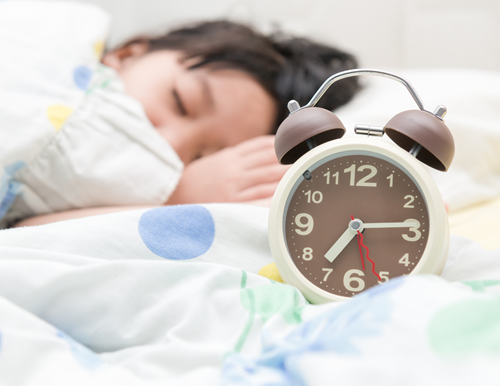
To help your child get a good night’s sleep there may be changes you can make within their bedroom. The room should be a comfortable temperature being neither too warm nor too cold. A quiet, dark, calm environment with toys tidied away will encourage sleep. Use a nightlight if your child is frightened of the dark. Where possible reduce any external noise within the household.
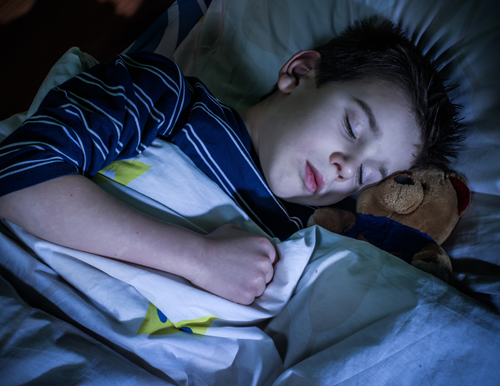
A consistent bedtime routine is important as it teaches your child what to expect in the time leading up to bedtime.
All electronic devices should be turned off at least one hour before bedtime this includes T.V, computers, games consoles and mobile phones. The blue light from screens stimulates brain activity which delays the onset of sleep.
Help them to become involved in a quiet, relaxing activity such as colouring/drawing or building a jigsaw in the lead up to bedtime.
Baths are helpful but only if your child finds them relaxing. Ideally a bath should take place at least 30 minutes before bedtime.
The bedtime routine should last about 20-30 minutes and have an end-point which your child will know means it is time to go to sleep, such as turning out the light and saying goodnight and leaving the room.
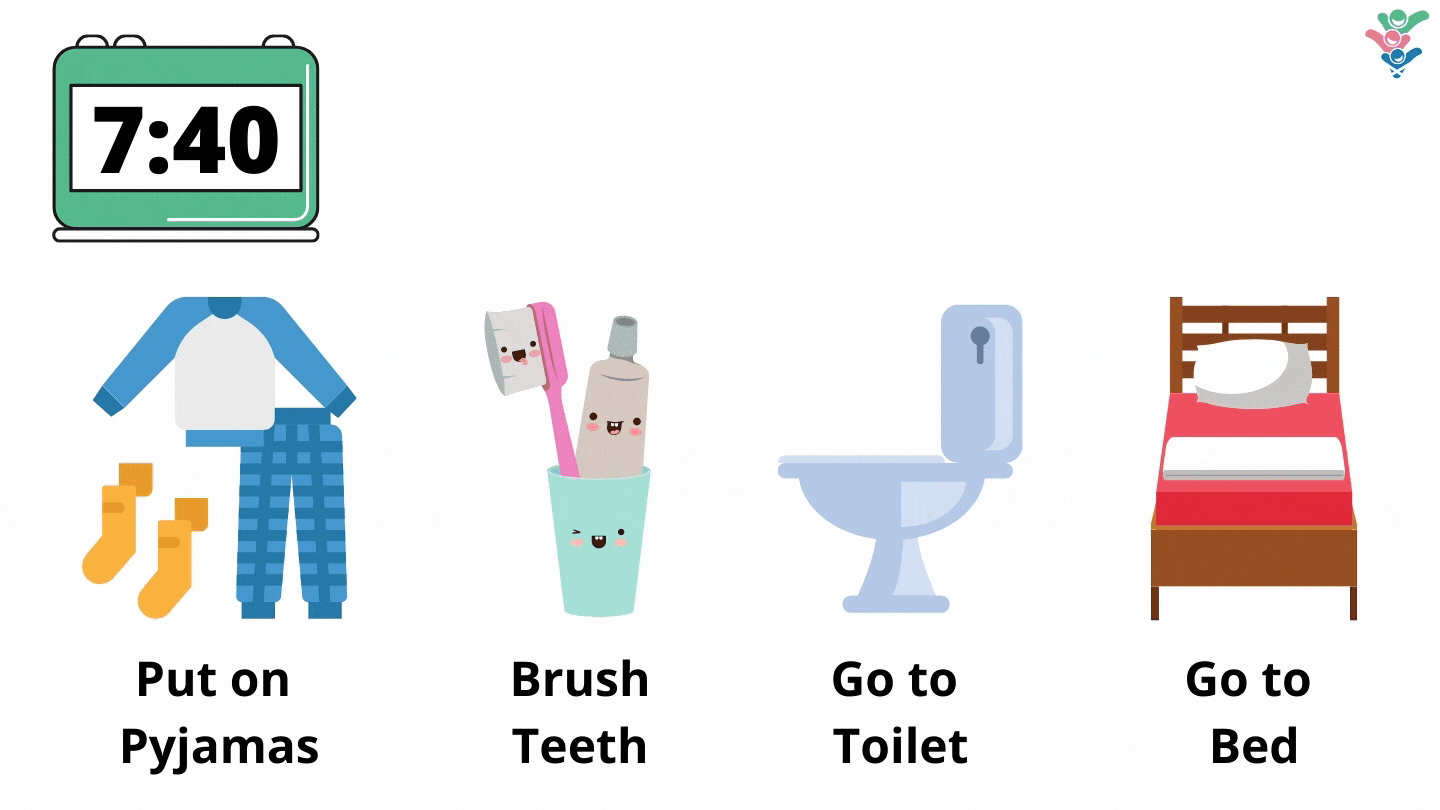
If your child will not settle to sleep by themselves and needs you with them this is a useful method of helping them to learn to settle to sleep alone. Rather than leaving your child to cry, you can gradually increase the distance between you and your child over a period of time until they no longer need you beside them to fall asleep. This can take a period of weeks and should begin with you sitting on a chair by the child's bedside and gradually moving the distance of the chair from the bedside until you are able to sit outside the door. If your child wakes you should return to the stage you were at when you had settled your child to sleep.
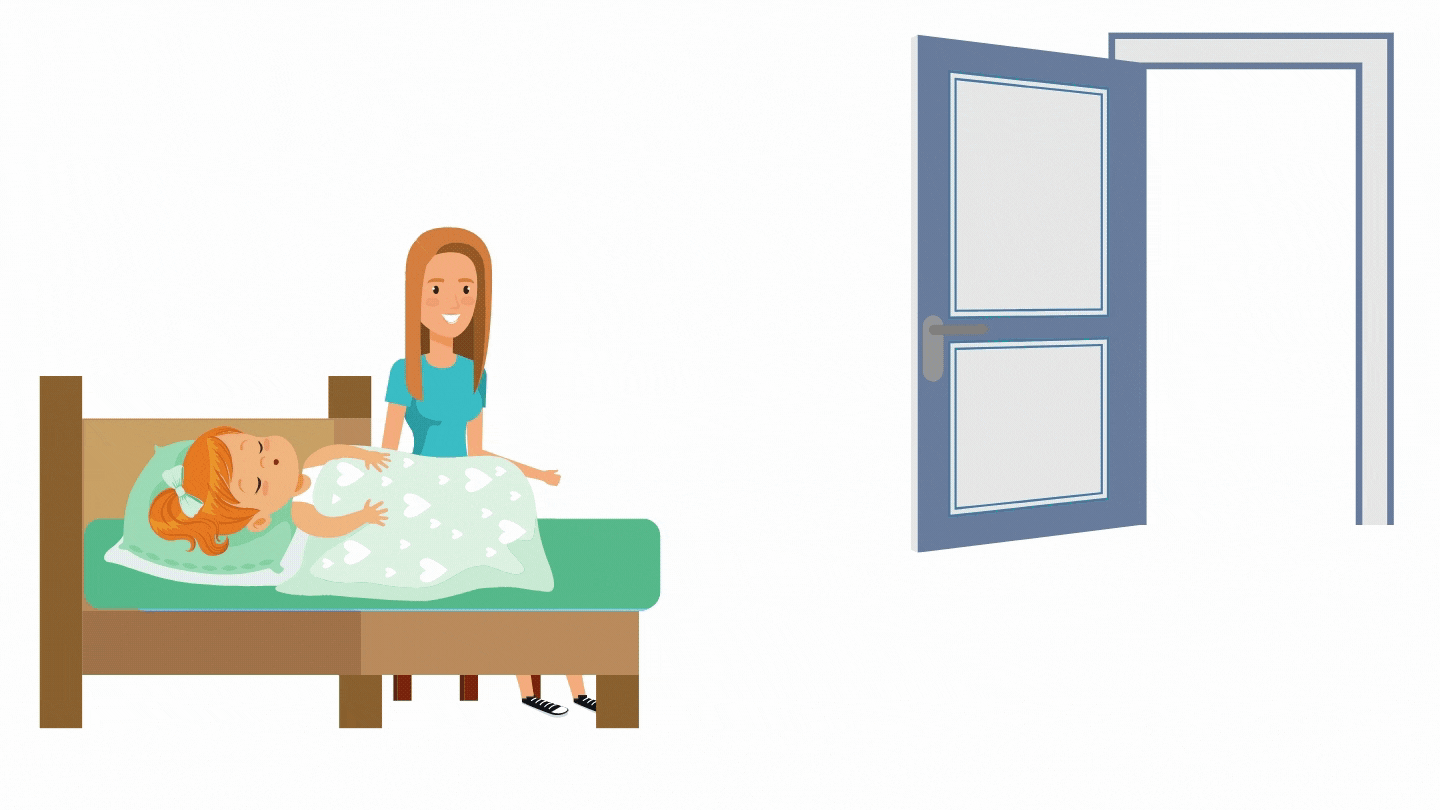
Please see below links to charities offering support and resources for families to access.
 Sleep Action (formerly Sleep Scotland) is the UK’s oldest sleep charity and leading provider of sleep support, training, and resources.
Sleep Action (formerly Sleep Scotland) is the UK’s oldest sleep charity and leading provider of sleep support, training, and resources.
Visit Sleep Support for more information.
![]() Contact has an information booklet for parents of disabled children to help your child sleep.
Contact has an information booklet for parents of disabled children to help your child sleep.
Click here for more information
 The National Autistic Society (NAS) has provided visual supports that can be used to communicate with people on the autism spectrum and children with speech, language and communication needs. They are adaptable, portable and can be used in most situations.
The National Autistic Society (NAS) has provided visual supports that can be used to communicate with people on the autism spectrum and children with speech, language and communication needs. They are adaptable, portable and can be used in most situations.
Click here for more information
The products below have been selected with the intentions of helping the care and development of children with additional support needs. These products could be an additional resource which parents/carers may find useful to support their child’s needs.
All-in-One Pyjamas that can help your child keep warm, especially if they are inclined to kick off their bedding at night.
Available from a range of outlets.
If you continue to be worried about your child or young person's sleep, please contact your Health Visitor or G.P.